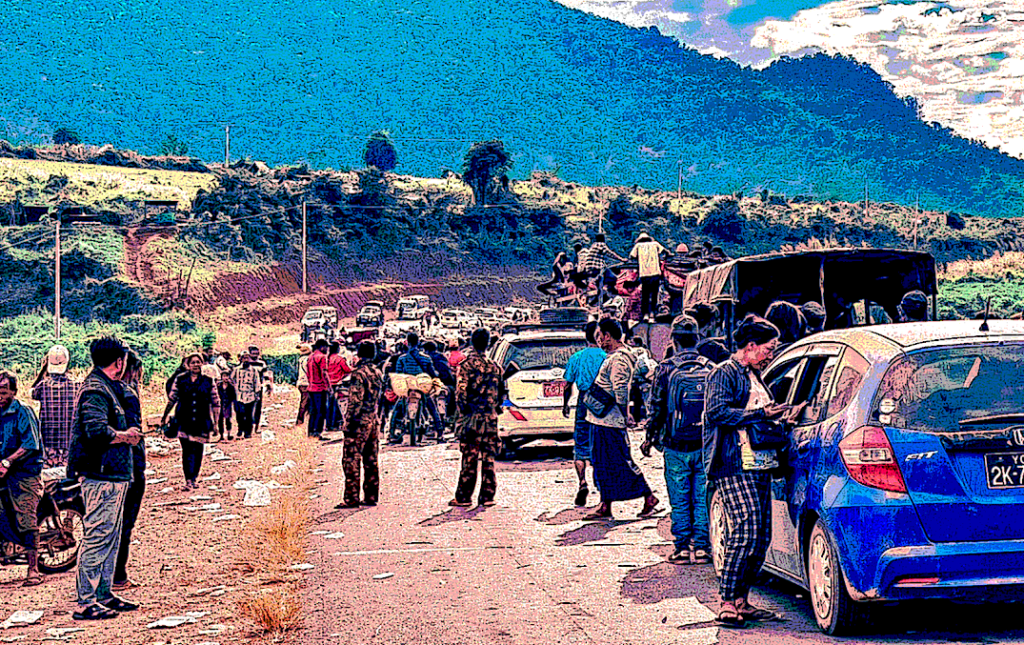Myanmar Spring Chronicle – December 02
MoeMaKa, December 03, 2023
Impact of Conflict and Economic Downturn in Myanmar
During times of conflict, the availability of essential commodities such as food, clothing, and medicine becomes scarce, and the purchasing power of money diminishes. While the current civil war in Myanmar may not parallel the severity of World War II, the nation is grappling with soaring commodity prices, product shortages, and disruptions in trade and transportation.
The military council’s blockade of Rakhine State has led to a surge in prices for basic goods. In Thandwe, Rakhine State, where transportation has been hindered for three weeks, the prices of green chilies, tomatoes, ginger, and cabbages have skyrocketed, causing distress among the local population. The blockade in Rakhine State has not only impacted the region but also affected the prices of imported groceries from lower parts of Kachin State. Reports from Laukkaing town in the Kokang region, surrounded by a blockade, reveal exorbitant prices, such as 2,000,000 kyats for 4 gallons of fuel.
In Northern Shan, where conflicts have persisted for over a month, border trade with China has come to a halt, severely affecting the export of agricultural, livestock, and aquatic products to China. The suspension of border trade with China, coupled with prolonged shipping processes for sea trade, has dire consequences for the agriculture, livestock, and water industries.
Further complicating matters, the fighting in Kawkareik has blocked the Thai-Myanmar trade route, disrupting the vital trade link. The closure of the Myawaddy-Hpa An route, a major route for Thai-Myanmar border trade, adds to the economic challenges, with uncertainty about when normalcy will be restored.
The military council’s inspection of roads under the guise of security has led to daily demands for money over the past two years. This, coupled with taxes imposed by PDF-controlled areas, contributes to increased trade costs. Toll gates from Mandalay to various destinations, along with taxes on trucks and private cars, create additional financial burdens on traders. Such levies are reported to have reached exorbitant amounts, with one account citing a private car paying 1,800,000 kyats for using the road from Kale to Chin State’s Hakha, then proceeding to Monywa and Mandalay.
In the midst of economic stagnation, the public is experiencing reduced income, leading to difficulties in affording basic necessities. The rising prices of goods, exacerbated by the ongoing conflicts, pose a significant challenge for consumers. The situation is creating a widening gap where the lower-income population faces the risk of famine.
While the cost of war is evident in lives lost on the battlefield, the indirect consequences, such as poverty, hunger, and inadequate access to medical facilities, underscore the complex challenges faced by the population. The prolonged duration of these circumstances raises concerns about the potential for widespread famine, underscoring the urgent need for resolution and stability in Myanmar.

